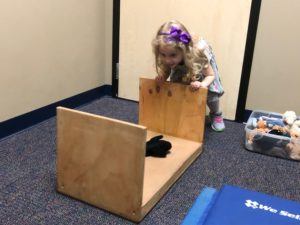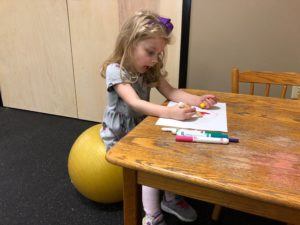Attention
We know we need to limit our kids’ screen time but how often do we parents think about our own screen time and how it impacts our children? There are countless articles on the dangers of screens for our children but now more concern than ever is being raised about parents’ screen time.
I stay home with my sons two days a week and countless times I’ve been at the park/swim lessons/restaurants with them and nearly every parent is on their phone. They aren’t interacting with each other and certainly aren’t interacting with their children. Not only our we losing an opportunity to build our village but we are losing out on precious moments with our children that we can’t get back.

This article from psych central discusses five reasons to put our phones away and be present for our children.
https://psychcentral.com/lib/put-your-phone-away-and-pay-attention-to-your-kids/
The last point stating that “Our kids need our first priority to be our relationships with them, not with our phones” should truly be all we need to read. There is so much for us to teach our children and they crave our attention, our encouragement, and our love. When our heads are buried in our phones we aren’t living real life and providing our children with all they need to properly develop and deserve.
I’ve deleted social media apps from my own phone in an effort to disengage from it. My wife struggles more so and recently experienced a little gut punch when our 5-year-old said he didn’t want her on her phone so much.
So what can you do?
- Have a designated place to put your phones when you get home and basically don’t touch them until the kids are in bed. This especially means NO PHONES AT THE DINNER TABLE. This is our current strategy and the one we are finding the most success with. It gives us uninterrupted, quality time with the kids and spouse and it also feels good to disconnect nightly
- Turnoff notifications for your apps. DO THIS. Don’t be a slave to every little ping your phone makes. Very little of it is so important that it can’t wait a couple hours
- Use apps the monitor usage and post reminders to put your phone down. A list can be found here but my wife warns they are effective at first but can be easy to ignore over time https://www.digitaltrends.com/mobile/best-apps-for-limiting-your-screen-time/
- Remember your manners! When your engaged in conversation or an activity with your child, don’t let a chirp from your phone interrupt the moment. That new Instagram post will be there later
Speaking of screen time, have you seen it impact your child?
The near nightly question we dread: “Can we have a video game night?”
Our 5-year-old loves playing video games, even on our old original and super Nintendos. He also loves to watch people play video games, Mario Brothers specifically, on YouTube. But we noticed behavior changes while he played and after playing video games or viewing someone else playing them.
Things came to a head when we let him watch A LOT of Mario Brothers on YouTube one Saturday morning as we slept in along with the baby. When we went to his t-ball game later at lunchtime he struggled through some tears when he didn’t have the chance to field the ball and then as he whiffed at bat and a few kids laughed. At the very end of the game he and another boy tussled over fielding the ball and our son kicked his teammate. We were gob smacked, apologetic, and deeply embarrassed. We were also confused because this just wasn’t our son.
This well-publicized article in the New York Post from 2016 may feel a little over-dramatic in it’s opening but its warning was not lost on us.
https://nypost.com/2016/08/27/its-digital-heroin-how-screens-turn-kids-into-psychotic-junkies/
My wife, a former software engineer and current Information Technology analyst, shares my low-tech approach to parenting for many of the exact concerns raised in the article. Because our children are young we didn’t know where the line was exactly but we certainly figured it out the hard way.
The YouTube app is no longer on our TV and video game night occurs about once a month. The tablet has never been a “thing” at our house but he does get to play on one infrequently at the sitters so he’s not completely void of technology because, after all, it is the future. He still asks almost daily to have a video game night and as much as we want to say yes, we continue to say no most of the time.

Setting the technology boundaries with young ones is pretty easy as long as you can stick to it through the tantrums. But what about older kids that have already been given a long leash when it comes to technology (or no leash at all)? A conversation about their usage is likely in order and perhaps it needs to be a family discussion if you found you struggle with your usage as well. Consider a gradual transitions and/or replacement activities to help wean them off. You can find some valuable tips on limiting screen time here: https://www.verywellfamily.com/tips-for-limiting-electronics-and-screen-time-for-kids-1094870

And remember, kids learn behaviors from their parents. If you are spending too much time on your device then they likely will too.
ABC Pediatric Therapy Network, http://www.abcpediatrictherapy.com, cares about families. Some children can have attention and/or sensory issues from too much screen time. Let us help if you have concerns about your child.
For more information visit http://www.abcpediatrictherapy.com
Read More
1. Understand the time your child should be able to attend to a seated task.
1 year: 1 minute
2 years: 2-4 minutes
3 years: 8 minutes
4 years: 10 minutes
5 years and up: 15 minutes
2. Give your child plenty of sensory/movement breaks throughout the day.
In today’s world, children are not given the breaks they need to function to their fullest potential. Allowing children to move around throughout the day will give them opportunities to let their energy out and ideally focus better when they are sitting. Running, climbing, jumping, and participating at recess is one of the best sensory motor activities a child can do at school. However, if the child needs more breaks or more structured activities during the day provide the following:
3. Provide proprioceptive input/heavy work through the school day.
Proprioceptive input activities involve heavy resistance and input to the muscles and joints. Engaging in these activities may help regulate a child’s arousal level, concentration, and ability to sit still/attend to a task.
· Wall/chair push ups
· Animal walks like crab walks
· Jumping up and down
· Sit ups
· Push ups
· Jumping jacks
· Wheelbarrow walks
· Arm Squeezes/self-hugs
· Complete activities in prone/on belly
· Chew on tougher consistencies, chew tubes, or hard candy
· Drink water through a straw
· Play oral motor games with straws during breaks
· Eat crunchy foods at meal times
· Apply a weighted blanket 
· Wear tighter clothing
· Pushing/pulling heavy objects
· Give the child more chores to complete around the classroom—wiping off dry erase/chalk board, putting up/pushing in chairs, washing tables, rearranging book shelves, sharpening pencils, carrying heavy boxes, cutting thick paper, etc.
4. Do these activities at home to continue regulating your child’s body. This can even help with homework time if your child is having a hard time concentrating at home.
5. Make breaks cards so your child is not abusing getting out of work both at work and at school.
Make a card for teacher’s choice, child’s choice, and proprioceptive input/heavy work. Have at least 2 of each type of card.
6. Talk to the teacher to determine if there are environmental changes that can be made.
Could your child benefit from fidgets, wiggle seats, or TheraBand applied to their desk? Does your child have to sit on the floor during circle time? See if your teacher could use a designated carpet square to make a specific area for your child to sit.
7. Reflex Integration Testing
It may be beneficial to contact ABC Pediatric Therapy to have your child’s reflexes tested. Some of your child’s reflexes may not have integrated correctly when s/he were a baby which could cause difficulty with attention/focus, sitting upright in a chair, and some other deficits that are inhibiting your child’s full potential to learn.
8. Contact ABC Pediatric Therapy specifically an occupational therapist for more ideas geared towards your specific needs and if you have any additional questions. Visit our website at www.abcpediatrictherapy.com to find the location nearest you.
Read More Skip to content
Skip to content
